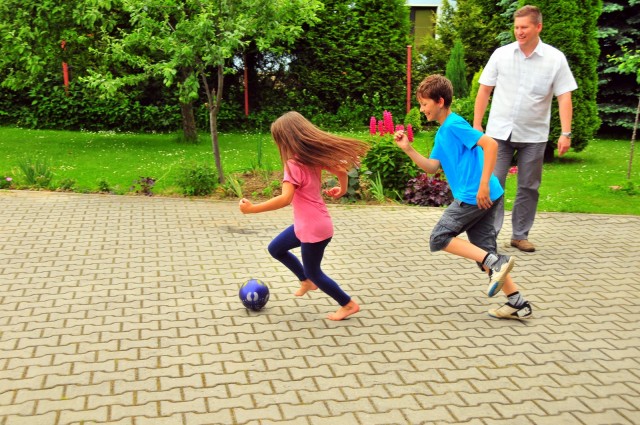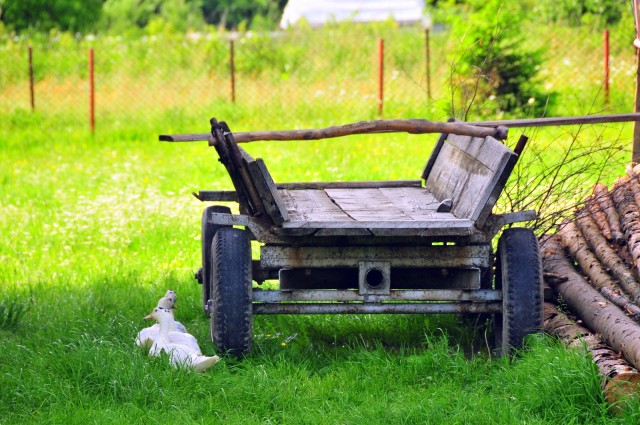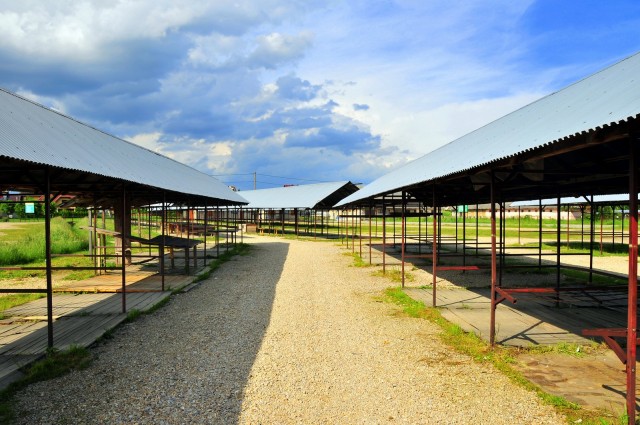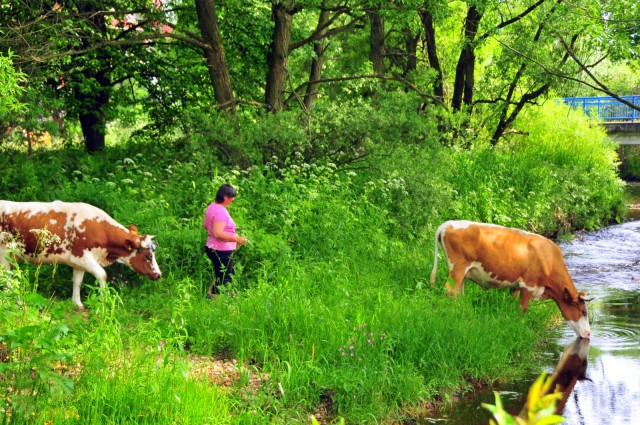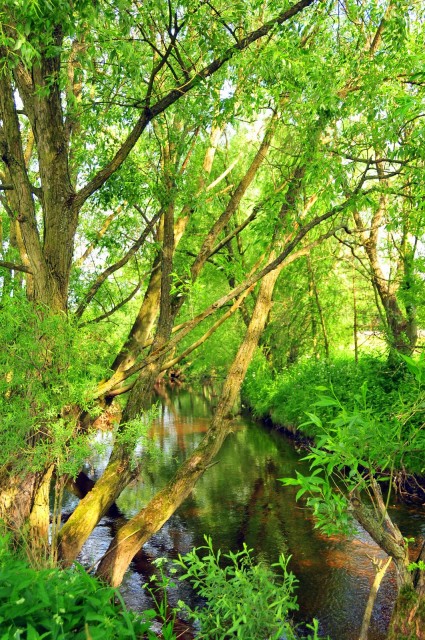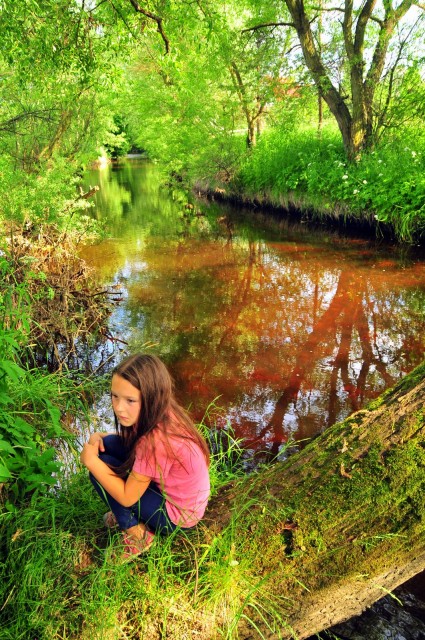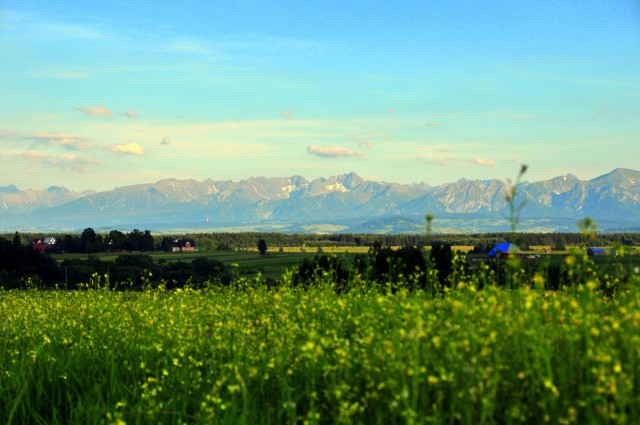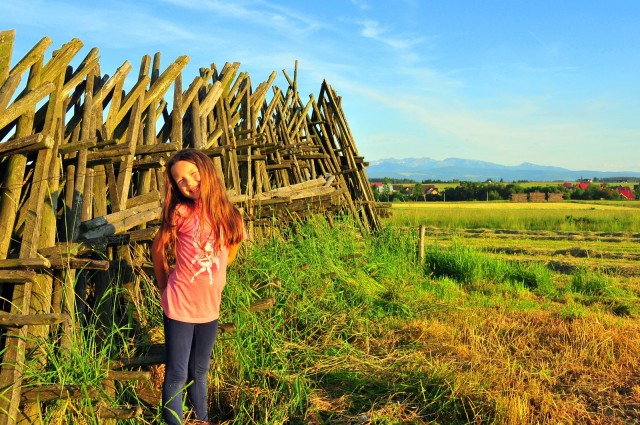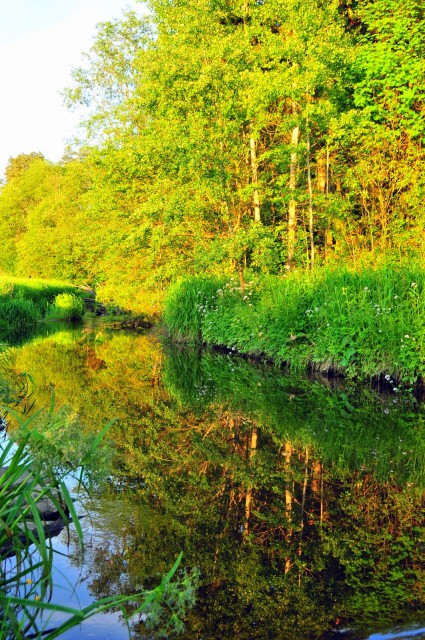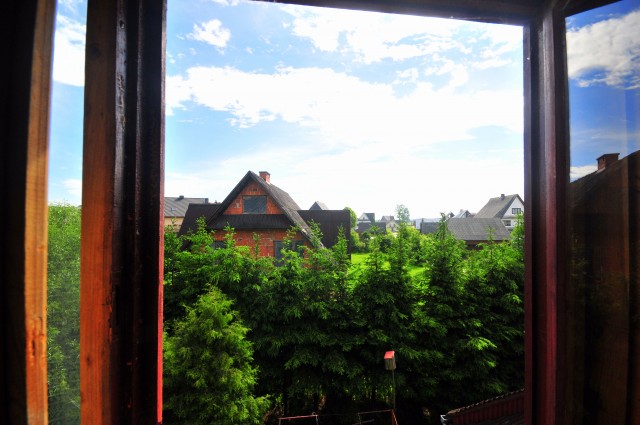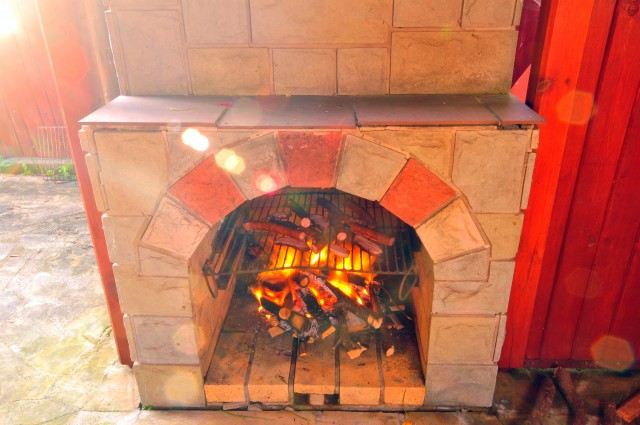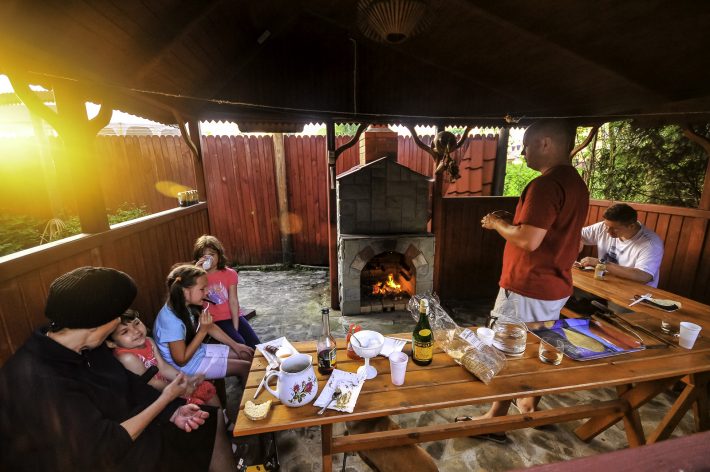The weekend winds down. The cousins head back to the outskirts of Krakow after one quick game of intercontinental family soccer. It’s a version of the game that might not be immediately recognized: incredibly wide goals, lax rules, multi-positional players, and a total goal total that’s close to forty.
Once it’s just the three of us again — Babcia, L, and I — Babcia asks us to take the dog out for a walk. He’s a friendly fellow, fairly curious yet fairly obedient, so walks usually involve him running ahead, trailing behind darting off to the left or right only to come almost immediately when someone calls, “Kajtus!”
This afternoon, though we start of in the same direction, passing the same barn next to Babcia’s with the same ducks marching by the same trailer,
we take a right instead of a left, and soon we’re in the empty flea market. Stall after covered stall, one beside the next, all leading to the main market area where even more stand waiting. This market has been in this same location for only about twenty-five years, but the market itself dates to the time of the Austro-Hungarian Empire.
“What about during the Communist period?” I ask Babcia. Would such blatantly privatized ventures have been allowed?
“Of course! In many ways, it was more important then than now.”
The ironies of Poland: in many ways Communist for decades, in many other ways, breaking the mold of Communism — which in turn broke Communism. For instance, there were never the large collective farms in Poland that one saw in Stalinist Soviet Union. The State did not crack down on religious expression as it did in the Soviet Union. These two facts alone did more to undermine Communism and help with the post-Communist restructuring than almost anything else.
The ironies of Poland.
Our walk continues through the market to a point where we meet the ubiquitous river — even when we’re not walking to it, we’re walking to it. And so are many others.
We turn and walk along the river, and the scene becomes almost fairy-tale-like. More ironies of Poland: within a mere few meters of the local bastion of commerce and capitalism, so to speak, one can find land that seems almost untouched by anyone.
L perches herself on a tree, and for a few moments, we just look around. The light is golden now, filtering through the leaves and reflecting here and there on the water.
After dinner at a local restaurant — the first real restaurant in Jablonka — L and I head out for another walk. The air is cool, the Tatra Mountains are unusually clear, and the light is only getting richer and richer.
making everything positively glow.
Eventually we make it back to our usual riverside retreat. A man is fishing there, a man who turns to look at me and smile his crooked smile and make himself immediately recognizable.
“Pawel!”
“Dobry wieczor, Pan.”
I haven’t taught him in probably a decade; we’re both adults now, and he’s likely in his thirties, but he still calls me “Pan,” the respectful third-person form children use with adults and strangers use with each other. K still talks to her teachers the same way when she meets them. In fact, everyone does. It’s just part of the culture. Still, it would be nice for him to see us now as equals. Then again, probably he does: linguistic formality doesn’t always mirror personal opinion.
It’s something to accept and move on, like so many things in life. It’s a trifling matter after all. And views like this make sure we keep those trifles in perspective.
